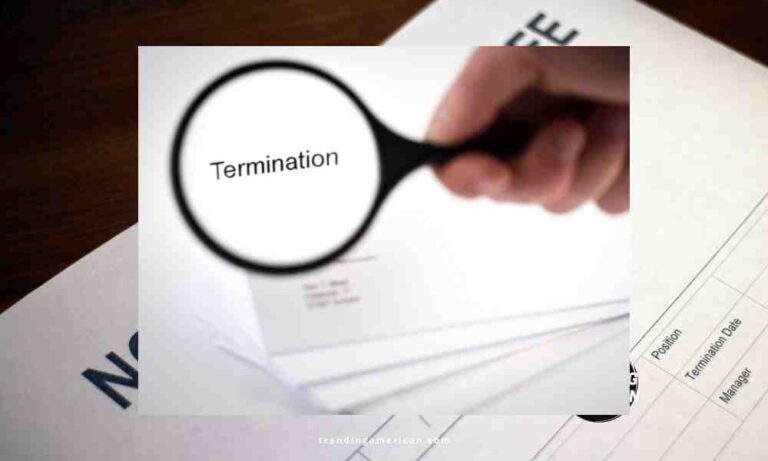Your Personal Injury Lawyer Can Make or Break Your Case – Here’s How to Choose
If you’ve found yourself in the unfortunate position of requiring a personal injury lawyer, one thing is certain: the outcome of your case could significantly shape your future. In a legal landscape rife with complexities, choosing the right attorney is a pivotal decision—one that shouldn’t be taken lightly. This comprehensive guide is designed to equip personal injury victims with the knowledge to navigate the selection process with precision and confidence.
Investigate the Attorney’s Expertise in Personal Injury Cases
Your initial step should involve conducting a thorough review of an attorney’s specific expertise in personal injury law. It’s not enough to seek out a general practitioner; your goal is to find a professional who specializes in personal injury law and has a proven track record of success in cases similar to yours. From Lane Brown, LLC in Chicago to the law offices of local attorneys in New York City, make sure to do your research and compile a list of potential attorneys with experience in handling cases like yours. Look for lawyers who have dedicated their careers to this area of law, as their in-depth knowledge and experience can be a game-changer. Gather information on their previous case outcomes. Successful settlement figures and trial verdicts can indicate the attorney’s ability to pursue and secure fair compensation for clients. Top-tier personal injury lawyers often contribute to legal literature and speak at legal conferences, demonstrating a commitment to staying at the forefront of their field. Certification by the National Board of Trial Advocacy is often an emblem of high-quality service and can be a strong indicator of expertise.
Review the Lawyer’s Standing in the Legal Community
A personal injury lawyer’s reputation amongst their peers can offer telling insights into their professional conduct and integrity. Reputable lawyers often enjoy recognition from legal organizations, accolades, and peer-reviewed ratings, such as those from Martindale-Hubbell or Super Lawyers. Engage with their former clients and seek peer reviews. This feedback will present a balanced view of the lawyer’s performance and methods. Check bar association records for any history of unethical conduct. A lawyer’s disciplinary record can reveal patterns of behavior that may be a red flag. Positive recognition from credible legal bodies is an encouraging sign that the attorney is highly regarded within their professional community. This can also reveal the level of respect and credibility they hold with insurance companies, judges, and other attorneys. Keep in mind that even the best lawyers may have a few negative reviews, but overall their reputation should be strong within the legal community.
Confirm the Availability of Adequate Resources at the Attorney’s Firm
Personal injury cases often demand substantial resources, including financial, personnel, and technical capabilities. Confirm that the attorney’s firm has the infrastructure to handle tasks such as evidence gathering, expert witness coordination, and court filings effectively. A large support staff can be crucial in managing the administrative workload and allowing attorneys to focus on case strategy and client representation. Firms with advanced legal research tools and case management technologies can operate more efficiently and stay organized in complex cases. Inquire about the firm’s funding for case expenses as this can affect the attorney’s ability to mount a robust case without tapping into a client’s finances. You want to work with an attorney who has the resources and support necessary to ensure that your case is handled with utmost care and attention, leaving no stone unturned in fighting for your rights.
Discuss the Payment Structure
Understanding the attorney’s fee arrangement is essential and can vary from a traditional hourly fee to a contingency fee basis, where the attorney only receives payment if the case is won. A popular choice for personal injury cases, a contingency fee motivates the attorney to secure the highest possible settlement or verdict since their payment is contingent on the case’s success. Be clear on the percentage the attorney will claim upon winning the case. The standard falls between 25-40%, but ensure this figure is agreed upon before any services are rendered. Determine how case expenses will be covered, whether through the client’s pocket or deducted from the final settlement, as unanticipated expenses can significantly affect your financial recovery.
Evaluate the Attorney’s Tenacity for Litigation
While settlements can often serve a client’s best interests, a capable litigator is ready to take a case to trial if necessary. A seasoned trial attorney can often command a higher settlement outside of court, given their demonstrated willingness and preparedness to go to trial. Inquire about previous trial experience. An attorney who has a robust track record in the courtroom can instill fear in opposing counsel, potentially leading to more favorable settlement offers. Understand the attorney’s typical approach to settlements. While negotiation skills are vital, a lawyer who is known to accept low offers in favor of quick settlements may not be the best advocate for your maximum recovery. A manageable caseload means your attorney can give necessary attention and avoid rushing your case towards a less favorable resolution.
Ascertain the Level of Individualized Focus Your Case Will Receive
Personal attention from your attorney can mean the difference between a satisfactory settlement and a disappointing outcome. Ensure that the attorney you select is committed to providing your case with the attention it warrants. Set expectations for how often you will meet with your attorney to stay informed and involved in the progression of your case. Understand who will be the primary lawyer handling your case. It’s beneficial to have a senior attorney overseeing your matter and not solely delegated to junior staff. Discuss and agree on the overall strategy for how to approach your case. It should align with your desired outcome and needs.
Analyze the Lawyer’s Communication Practices and Readiness to Engage
Open lines of communication are pivotal in the attorney-client relationship, especially in legal matters dealing with personal injury. You should feel comfortable with your lawyer’s communication style and committed to maintaining engagement throughout the case. Ask about communication policies and expectations regarding telephone calls, emails, and updates. Clear lines of communication are crucial for staying informed on your case’s progress and any potential developments. Ensure you receive regular updates on the status of your case, outlining any wins, challenges, and changes in strategy. Both parties should have a clear understanding of their roles and responsibilities throughout the legal process to avoid confusion or miscommunication.
Selecting a personal injury lawyer is a decision that can either bolster or hinder your path to recovery. By thoroughly investigating each potential attorney’s expertise, status, resources, payment structure, tenacity for litigation, level of focus, and communication practices, you can significantly increase your chances of securing the legal representation you need and deserve. Empower yourself with the knowledge and diligence vital to make the right choice. Your personal injury case is too important to leave to chance.







